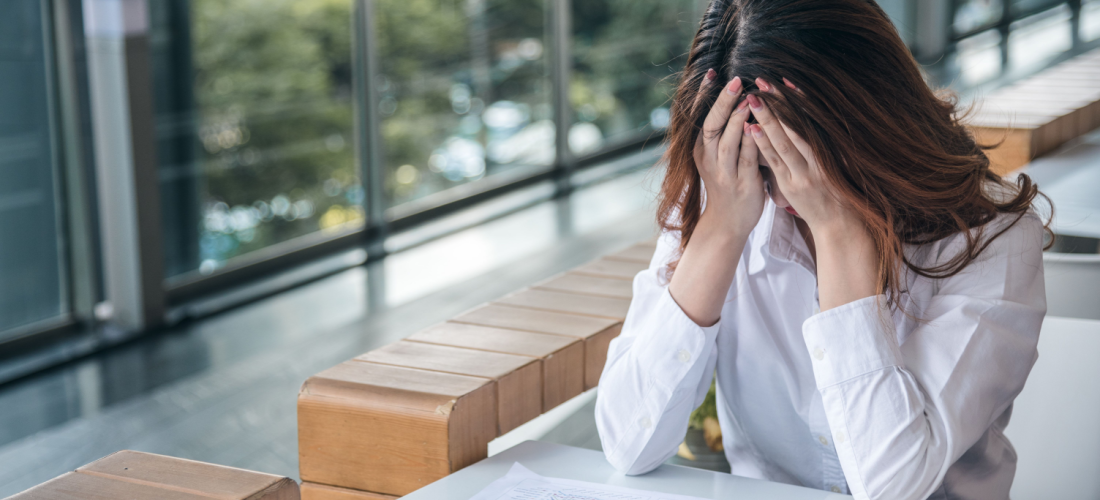Reliable Methods in Therapy for Anxiety Disorder: A Path to Healing
When encountering stress and anxiety disorders, you may really feel not sure and overwhelmed of where to turn. Efficient coaching approaches can lead the means for recovery, giving you with the tools to browse your obstacles. From cognitive-behavioral methods to mindfulness practices, each technique uses one-of-a-kind benefits. Recognizing just how these strategies work with each other can make a significant distinction in your journey. So, what are the crucial parts that will lead you in the direction of lasting adjustment?
Comprehending Anxiety Problems: A Detailed Introduction
It's crucial to recognize that they include a variety of conditions identified by excessive fear or worry when you believe concerning anxiousness problems. These problems can materialize in different methods, including generalized anxiousness disorder, panic problem, and social anxiety condition. You could experience signs like quick heart beat, sweating, or problem concentrating. It prevails to really feel overwhelmed, and these feelings can disrupt everyday life.Understanding the source of anxiety is essential. They can come from genetics, brain chemistry, or environmental aspects. You might discover that certain situations activate your anxiety, making it essential to identify these triggers.
Cognitive Behavioral Treatment (CBT): Improving Idea Patterns

Mindfulness and Relaxation Techniques: Growing Present-Moment Understanding
Mindfulness and relaxation techniques aid you grow present-moment understanding, allowing you to take care of anxiousness more efficiently. By concentrating on the right here and now, you can damage devoid of the cycle of fear and rumination that commonly gas stress and anxiety. Start by exercising deep breathing exercises. Breathe in slowly via your nose, hold for a minute, after that exhale with your mouth. This basic technique can relax your mind and body.Engage in mindfulness reflection by alloting a couple of mins each day to observe your ideas without judgment. Pay focus to your breath, experiences, and the audios around you. You might likewise find value in dynamic muscular tissue relaxation, where you tense and unwind each muscular tissue group, promoting mental and physical ease.Incorporating these methods into your everyday regimen can produce a better sense of control, decrease stress and anxiety symptoms, and improve your general well-being. Bear in mind, uniformity is vital to experiencing the benefits.
Exposure Treatment: Facing Anxieties Slowly
Exposure treatment assists you face your fears gradually, permitting you to develop confidence over time. By making use of progressive exposure strategies, you can gradually challenge what makes you distressed while developing reliable coping devices. This process not just reduces your fear yet also equips you to manage anxiety better.
Steady Exposure Techniques
You can properly decrease anxiousness and reclaim control over your life when you challenge your worries progressively. Gradual exposure methods include encountering your concerns detailed, beginning with less daunting scenarios. You might start by imagining the feared situation, after that proceed to checking out videos or images associated with it. Ultimately, you can exercise challenging the concern in the real world, however just when you really feel all set. This technique enables you to develop self-confidence as you relocate with each phase. Remember to rate on your own; hurrying can raise anxiety. Celebrate little triumphes in the process, as each advance encourages you. By consistently applying these methods, you'll discover that your worries begin to shed their hold on your mind.
Building Coping Mechanisms
Building reliable coping devices is vital for managing stress and anxiety, especially as you encounter your concerns progressively via direct exposure therapy. Beginning by identifying your particular concerns and damaging them down into manageable steps. By doing this, you can slowly face each concern without coming to be overwhelmed. As an example, if you have problem with social scenarios, begin by practicing small interactions, like greeting a neighbor.Alongside steady exposure, include relaxation methods such as deep breathing or mindfulness to relax your mind before dealing with triggers. Maintain a journal to track your progression and celebrate tiny success. Surround yourself with supportive pals or a therapist that can direct you. Bear in mind, it's a journey-- patience and perseverance will strengthen your coping mechanisms, causing greater resilience versus anxiousness.
Encouraging Counseling: Structure Trust and Relationship
To properly support a person with anxiousness, establishing count on and connection is important from the very initial session. You'll want to produce a safe area where they really feel comfy revealing their ideas and sensations without judgment. Energetic listening is essential; program real interest in what they share. Acknowledge their feelings and confirm their experiences. It is very important to be compassionate, as this helps develop a link and urges openness.Be consistent in your strategy and maintain privacy to more reinforce that depend on. Usage open body movement and make eye call to share your attentiveness. Bear in mind, your patience goes a lengthy way; structure relationship takes some time, and it's important to value their speed. By fostering this supportive setting, you'll equip them to engage more fully in the restorative process, making it easier for them to explore their anxiousness and work towards healing.
Group Treatment: Shared Experiences and Collective Recovery
Group therapy can be an effective tool for those dealing with anxiety problems, as it allows individuals to share their experiences and discover solace in the understanding of others. In this supportive atmosphere, you can reveal your feelings without worry of judgment. Hearing others' tales can normalize your very own experiences, making you feel less alone in your struggle.Participating in team treatment helps you establish coping strategies with shared expertise and understandings. As you pay attention to others, you might discover brand-new means to tackle your anxiety that you had not considered before.Moreover, the collective recovery that happens in these sessions can promote a feeling of neighborhood, advising you that you're not facing your difficulties alone.Building links with others that comprehend your struggle can enhance your confidence and motivation to face your anxiousness. Group treatment develops a room where growth and recovery come to be a shared journey, encouraging you to take steps towards healing.
Incorporating Way Of Living Modifications: Holistic Methods to Anxiety Administration
While therapy provides important assistance, integrating way of life modifications can greatly boost your ability to manage stress and anxiety. Start by integrating normal exercise into your routine. Workout launches endorphins, which can boost your mood and reduce tension. Next, pay interest to your diet website plan. Consuming a well balanced diet regimen abundant in fruits, vegetables, and entire grains can positively affect your psychological wellness. Do not ignore sleep-- objective for 7-9 hours per night, as top quality rest is vital for psychological regulation.Mindfulness practices, such as reflection or yoga exercise, can additionally assist you remain grounded and existing. Consider setting apart time each day to practice these methods. Limit high levels of caffeine and alcohol consumption, as they can aggravate stress and anxiety signs and symptoms. By making these all natural modifications, you create a stronger foundation for taking care of stress and anxiety, enhancing the advantages gained from therapy. Remember, every small step trust your course to healing.
Regularly Asked Concerns
What Are the Common Physical Symptoms of Anxiety Problems?
Usual physical symptoms of stress and anxiety disorders include fast heart rate, lack of breath, muscular tissue tension, sweating, and migraines. You might likewise experience exhaustion, lightheadedness, or gastrointestinal issues, which can even more complicate your everyday life.
The Length Of Time Does Therapy for Anxiety Usually Take?

Counseling for anxiety typically takes a few weeks to numerous months, relying on your private requirements and development. counselling for anxiety. You'll locate that routine sessions help you create coping methods and gain insights right into your anxiousness
Can Anxiousness Conditions Be Totally Healed?

What Should I Do in an Anxiety attack?
Throughout an anxiety attack, emphasis on your breathing. Breathe in deeply with your nose, hold for a minute, after that exhale gradually - counselling for anxiety. Ground on your own by calling objects around you, and remind yourself it will certainly pass
Are There Medications for Anxiousness Disorders?
Yes, there are a number of medicines for stress and anxiety disorders, consisting of benzodiazepines and antidepressants. You need to speak with a medical care specialist to discover the appropriate therapy strategy customized to your particular needs and situations for the very best results. When you think concerning stress and anxiety disorders, it's important to acknowledge that they encompass an array of problems identified by extreme worry or fear. These disorders can materialize in various methods, including generalised anxiousness disorder, panic condition, and social stress and anxiety problem. Building efficient coping devices is necessary for taking care of anxiousness, particularly as you face your worries progressively through exposure treatment. Group treatment can be an effective tool for those dealing with anxiousness problems, as it enables individuals to share their experiences and find relief in the understanding of others. As you pay attention to others, you might discover brand-new means to tackle your anxiousness that you had not thought about before.Moreover, the collective healing that takes place in these sessions can foster a sense of area, reminding you that you're not facing your difficulties alone.Building links with others that understand your struggle can enhance your self-confidence and motivation to face your stress and anxiety.